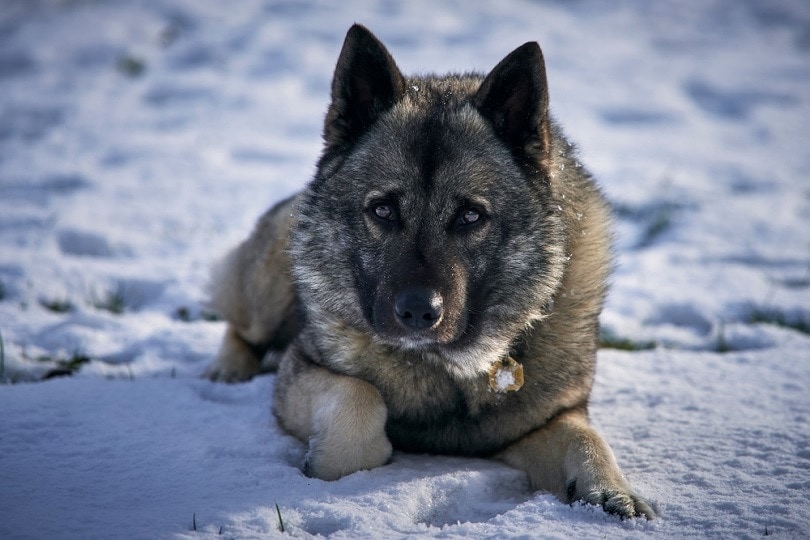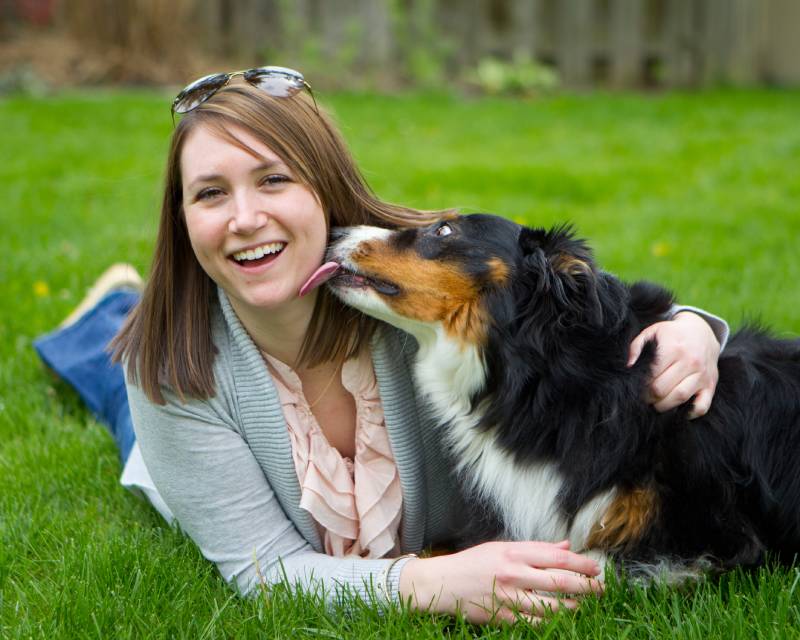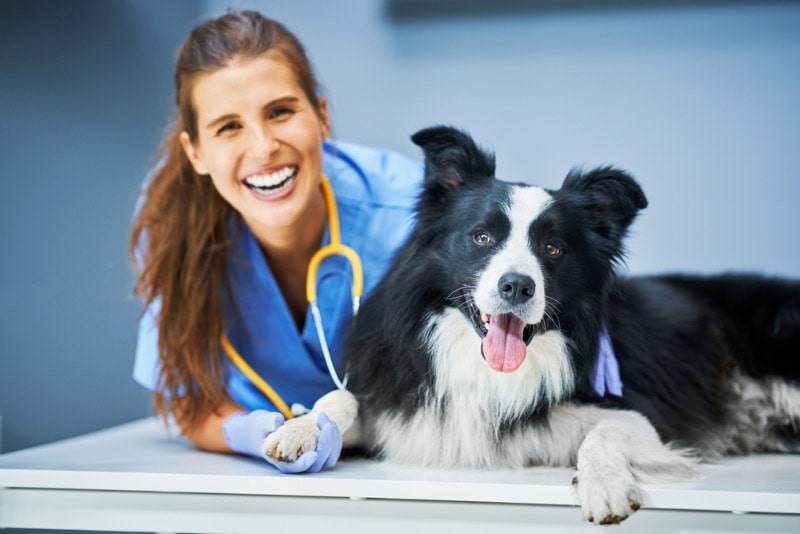How to Stop Dog Drooling: 7 Tips to Consider

Updated on
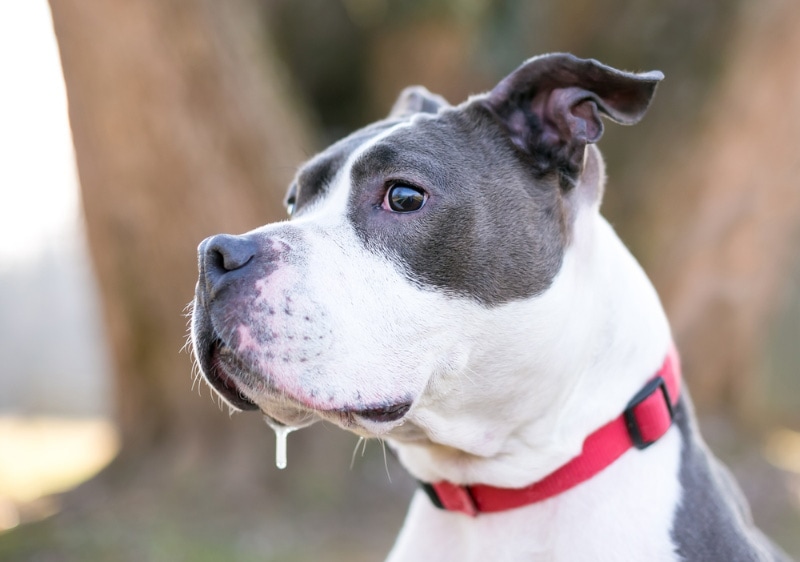
Click to Skip Ahead
Some dogs are naturally prone to drooling. Anybody that has seen the movie Beethoven, for example, should know that near-constant drooling is a trait of the St Bernard. While it is sometimes portrayed as being a charming trait, owners of drooling dogs know that it can be a nightmare and challenging to live with. It causes stains of clothes and with a flick of the head, it can put even the hardest stomachs off their dinner.
If your dog is drooling excessively, you should first identify the cause. You may need to visit a vet if the cause is medical, but there are some steps you can take to help reduce the amount of slobber your canine friend is producing.
Below, we take a more in-depth look at the possible causes of dog drooling and some of the ways you can help reduce or even prevent drooling.
What Is Dog Drool?
Dog drool is saliva. Saliva, which consists of 98% water as well as antibacterial compounds and enzymes, is vital to your dog’s health. It initiates the whole digestive process, moistens food, and ensures that chewed food can more easily pass through the throat and into the digestive system. It also aids in dental hygiene and its antibacterial properties help prevent gum disease.
But, while saliva in the mouth is beneficial to dogs, it can be a problem if so much of it is being created that it drools out of the mouth.
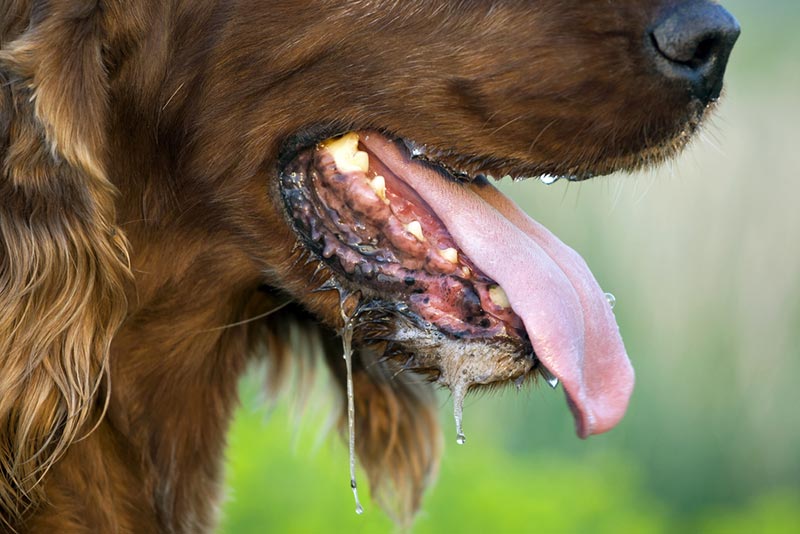
The 7 Tips for Stopping Dog Drooling
Salivation is natural for dogs, but drooling can be a sign of a bigger problem. There are some ways you can reduce salivation, but you should never mask any health or physiological causes of increased salivation.
1. Water
Dehydration can cause excessive salivation as the body attempts to produce the fluid that your dog needs. Dogs should always be given unrestricted access to fresh water, so make sure your dog’s bowl is full of clean water. Check it when you leave the house, when you get back from the house, and at regular intervals over the day.
2. Ice
Some dogs love ice. It not only helps ensure your dog is well hydrated, but it can help alleviate any pain that might be causing excessive drooling and it can reduce inflammation, which is another possible cause of drooling.
3. Regular Exercise
Walking helps ensure that oxygen flows throughout your dog’s body and to all essential organs. Oxygen is also delivered to the tissues and to the glands that produce saliva. Therefore, regular walking can help reduce the saliva that your dog produces. Regular exercise is a vital part of your dog’s daily requirements.

4. Natural Remedies
Some natural remedies can help control saliva production. Coconut oil can be given as a daily supplement, and this may help reduce drooling, as well as herbal teas such as chamomile.
5. Good Quality Diet
Check your dog’s diet. In particular, determine whether there are any ingredients that might be causing excessive salivation. If your dog has allergies or has been diagnosed with sensitivities to certain ingredients, pay particular attention to make sure that these are not present in their diet.
6. Tackle Anxiety
Anxiety can be caused by many things. Separation anxiety is common in dogs and comes from the anxiety of being left alone or being apart from you for too long. Try crate training, exercise your dog before you go out, and offer toys to play with when you’re out. Other causes of anxiety can include changes to routines, loud and unexplained noises, and even general anxiety that may require professional help.
7. Visit the Vet
Drooling can be a sign of illness, and, in some cases, it shouldn’t be overlooked. Visit a vet if you’re concerned by your dog’s excessive salivation. They will be able to look for gastrointestinal problems, dental health problems, and any other medical reasons for drooling.
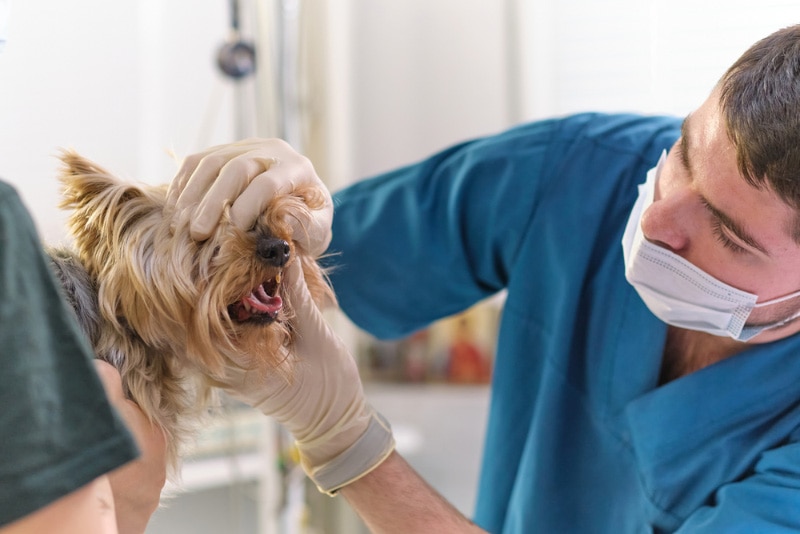
The 9 Causes of Drooling
Saliva production is natural and essential, but it can become a problem when a dog salivates too much and causes drooling. Before you can hope to stop excessive drooling, you will need to identify its cause. Typical causes of drooling include:
1. Food
Just as humans’ mouths water when presented with tasty and aromatic food, the same is true of dogs. Because your dog has more scent receptors than you do, it can pick up on aromas that you might not notice, and this incredible sense of smell could be the cause of your dog’s drooling.
2. Nausea
When we or dogs vomit, it can be quite harmful to the throat and the mouth. As a means of protecting these parts from acidic vomit, we salivate. If your dog is feeling sick or nauseous, drooling is a natural response to this sickness.
3. Facial Features
Breeds that are more prone to drooling than others tend to be ones that have extended jowls and large lips. The physical shape of the jowls means they cannot effectively stop saliva from escaping the mouth, and instead channel saliva out of the mouth to cause drool. In these cases, drooling is natural, although sudden excess drooling should still be investigated.
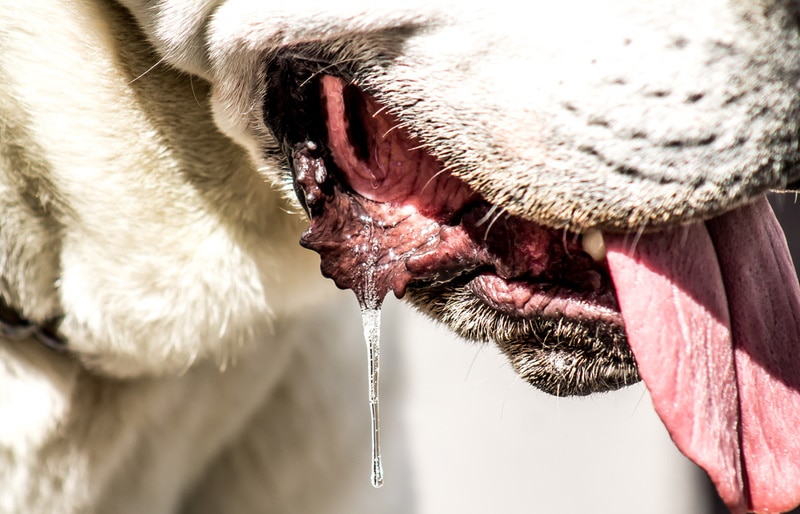
4. Stuck Foreign Bodies
A common cause of drooling in dogs is when they get a foreign body stuck somewhere in the mouth, typically between the teeth. Extra saliva is created in a bid to try and wash the offending object from its stuck position, and this extra saliva has to go somewhere.
5. Injuries
Another possible cause of salivation is injury to the mouth or teeth. Along with inflammation, salivation is the body’s natural method of trying to treat the injury. Its antibacterial properties mean that the saliva can help prevent infections. Look for physical injuries like cuts as well as ulcers or even burns.
6. Acidic Substances
Acidic substances trick the brain into thinking it needs to defend against the substance. Its defensive technique is to create saliva, so if your dog has eaten or drank anything especially acidic, salivation is a natural response. Check what your dog is consuming in its food and potentially even in the yard.
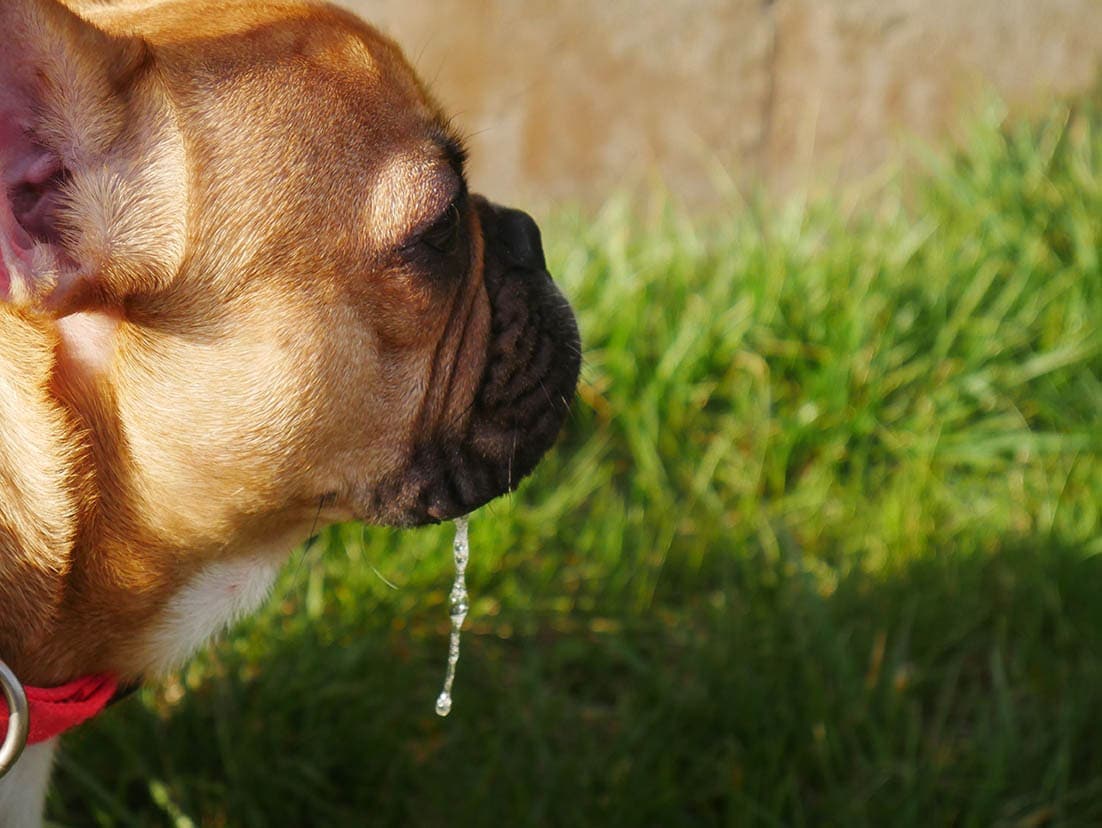
7. Gastric Reflux
Gastric reflux causes acid to head back up the throat and into the mouth. Saliva is meant to protect the mouth and throat from the acid so while the salivation is natural, it could be a sign that your dog has gastrointestinal problems that need investigating.
8. Excitement
Dogs may also drool as a response to excitement, which means your dog could be drooling because it is happy to see you or in anticipation of going for a walk.
9. Anxiety
Finally, drooling might occur when your dog is feeling anxious. This anxiety could be caused by separation anxiety or because some external stimuli, such as loud noises from outside, are causing fear. Try to identify any causes of anxiety and look to remove them or combat the anxiety.
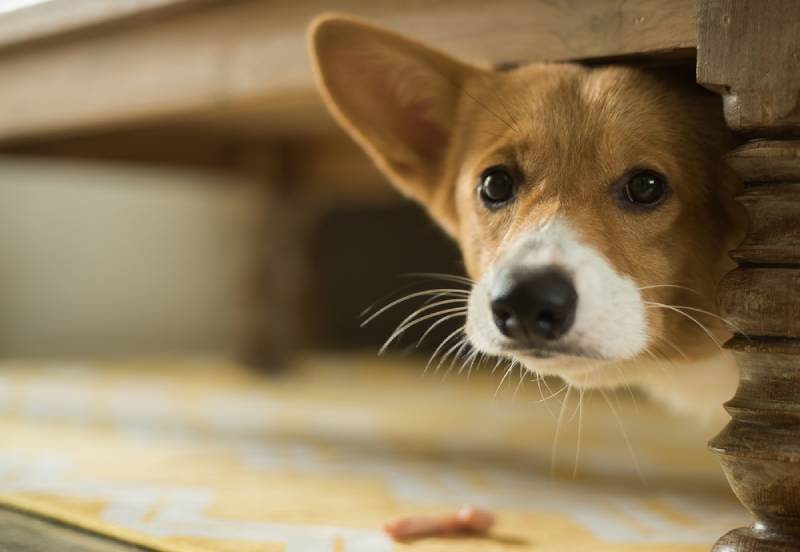
Conclusion
Some dogs drool more than others, and breeds like St. Bernards and Great Danes are especially prone to the problem because of the shape of their facial features. Other possible causes include anxiety and illness. Identify the cause of sudden drooling or excessive drooling and find ways to combat these problems if the drooling is a problem for you.
Featured Image Credit: Mary Swift, Shutterstock


